Otto Skorzeny
What is the government hiding?
1. The New World Order
24 Jul 2011
(United States) The story of the New World Order can be traced to the end of World War II in the months before Germany fell. It was at this time that Hitler was informed of Project Wolfsschanze by General Hans Kammler and Lieutenant Colonel Otto Skorzeny of the Waffen-SS. The project named for Hitler’s mountain retreat had been kept a secret from Hitler because its purpose had been considered unthinkable by the Fuehrer. Project Wolfsschanze was a black budget style program to insure the survival of Third-Reich even if Germany were conquered.
Otto Rahn: author, poet, Grail seeker, SS officer
In February 2007, Montserrat Rico Góngora published “The Desecrated Abbey”, in which he claimed that Heinrich Himmler, Hitler’s second-in-command and head of the Nazi SS, had made a secret wartime mission to an abbey in Spain, in search of the Holy Grail. Góngora even interviewed Andreu Ripol Noble, a former monk and the only person that spoke German, who was ordered by his superiors to guide Himmler during the visit in 1940. Ripol related that Himmler came to Montserrat inspired by Richard Wagner’s opera “Parsifal”, which mentions that the Holy Grail could be kept in “the marvellous castle of Montsalvat in the Pyrenees” – the mountain range that marks the border between France and Spain.
Roscoe's solution (Part thereof)
In Geography Strabo (64 B.C-23 A.D.) tells of a massive 300 tons of gold and silver bullion that was recovered by the Romans from the Celtic temples at Narbonne. This is near the mouth of the Aude river on the French Mediterranean coast. A further eighty kilometres up the Aude is Rennes-le-Chateau. Strabo attributes the bullion as either an accumulation of Celtic sacred offerings, or else the Celts' loot from the Greek treasuries at Delphi, sacked in 278 B.C. The Romans somehow lost the bullion near Narbonne during Caesar's Gallic Wars and it was never recovered.
The gold was taken from a votive lake by a Roman proconsul by the name of Cæpion. He took 80 tons of gold and money and immediately re-melted this into ingots. This apparently disappeared during its transport towards the port of Narbonne following an attack from Volkes tectosages upset by this profanation of their sacred offerings. They would have then withdrawn to the high valley of the Aude and would have hidden the treasure in this area which is easy to police.
Otto Rahn Biography
CHRONOLOGY 1904-1939
18 Feb 1904 Otto Rahn born, Michelstadt. Parents Karl & Clara (nee Hamburger)
1910-1916 Junior school at Bigen
1916-21 Secondary school at GrieBen
1922 obtains Baccalaureat
1924 obtains Bachelor in Philology and History
1930 Rahn begins his European travels (Paris, Provence, Switzerland,
Catalonia, Italy)
1931 Rahn visits French Pyrenees. Visits "Spion" in Pyrenees with Himmler and Abetz
1932 Rahn leads a Polaires expedition in Pyrenees
13.12.33 Rahn joins the German Writers Association
1934 publishes "Kreuzzug gegen Gral" (Crusade against the Grail)
1935 appointed to personal staff of Heinrich Himmler
29.2.36 Rahn joins Allgemeine-SS, member 276 208
1936 Rahn visits Iceland with 20 men
1937 publishes "Luzifers Hofgesind. Eine Reise zu denguten Gelstern Europa" (Lucifer's Court in Europe; Rahn sent back to Languedoc (Montsegur), says he will return in 1939. Time of alleged Corbieres visit?
20.4.37 promoted to sub-lieutenant (Untersturmfuhrer)
Sep-Dec1937 military service for "disciplinary reasons" at Oberbayern Regiment, Dachau<
Otto Rahn – Otto Skorzeny Raiders of the Found Ark?
The founders of the Third Reich were esoterically involved with matters which unavoidably skirt the mysteries associated with the valley of Rennes-le-Chateau. Their interests were not however, confined to the ephemeral, there is evidence of the tenacity with which they pursued the material associations of the valley. Many assorted books on Rennes-le-Chateau mention that a battalion of German mining engineers made excavations in the area during World War Two.
Holy Grail
Since the publication of The Da Vinci Code the debate rages as to what and where the true Holy Grail exists
Taken as a whole, the various renditions of the Holy Grail legend, whether they derive from Europe or Asia, imply that there are many forms that the Holy Grail can take.
These legends assert that the Holy Grail can be anything from the platter mentioned by Chrétien de Troyes, the first author of the Holy Grail legend, to the Cup of Christ alluded to by Robert de Boron, or even the Stone of Heaven mentioned by Wolfram von Eschenbach in Parzival.

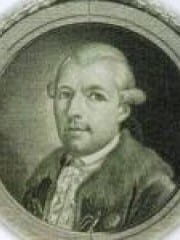
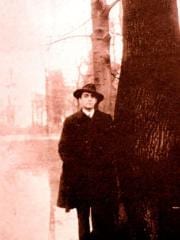
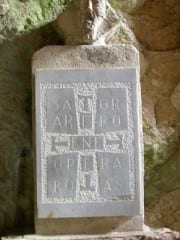
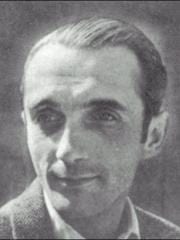
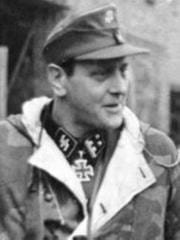
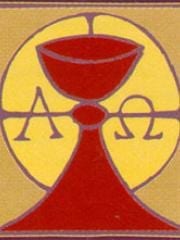
Neueste Kommentare
vor 13 Jahre 50 Wochen
vor 13 Jahre 50 Wochen
vor 13 Jahre 50 Wochen
vor 13 Jahre 51 Wochen
vor 14 Jahre 2 Wochen
vor 14 Jahre 7 Wochen